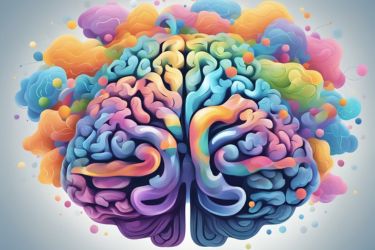Emotional intelligence plays a crucial role in our daily lives, influencing how we interact with others and manage our own feelings. The question of whether emotional intelligence can be taught has gained significant attention in recent years. Research shows that we can indeed learn to improve our emotional skills, making personal and professional growth possible.

Many programmes and strategies focus on developing emotional intelligence, emphasising skills such as self-awareness and empathy. These skills can be integrated into educational settings and workplace environments, highlighting the importance of Social and Emotional Learning (SEL). By actively teaching these concepts, we can foster a generation better equipped to handle social challenges and workplace dynamics.
As we explore this topic, it becomes clear that emotional intelligence is not just an innate trait; it can be cultivated with the right guidance and practice. This insight opens doors for many, encouraging us to reflect on our own emotional capabilities and how we can enhance them for a better future.
The Foundations of Emotional Intelligence

Understanding the foundations of emotional intelligence (EI) helps us appreciate its role in personal and professional success. We will explore its definition, its place within the broader concept of multiple intelligences, and the neuroscience that supports our emotional behaviours.
Defining Emotional Intelligence
Emotional intelligence refers to our ability to recognise, understand, and manage our own emotions while also being aware of and influencing the emotions of others. This includes skills such as self-awareness, self-regulation, empathy, and social skills. We can use these skills to navigate relationships effectively and respond to challenges with resilience. The concept is often summarised by the acronym EQ, which highlights its importance alongside traditional intelligence. Developing EI is crucial for improving interpersonal communication and fostering better teamwork.
Multiple Intelligence and Emotional Intelligence
Emotional intelligence fits within Howard Gardner's theory of multiple intelligences. This theory suggests that we have several ways of learning and processing information. While traditional intelligence (IQ) focuses on cognitive abilities, EI emphasises our emotional capabilities. Understanding our feelings can complement other forms of intelligence, such as linguistic, logical-mathematical, and interpersonal intelligence. By integrating EI with these intelligences, we become more well-rounded individuals, capable of engaging effectively with diverse perspectives and experiences.
The Neuroscience Behind Emotional Intelligence
The neuroscience of emotional intelligence revolves around how our brains process emotions. Key brain areas such as the amygdala and prefrontal cortex play significant roles. The amygdala helps us react to emotional stimuli, while the prefrontal cortex is involved in decision-making and impulse control. Research shows that mindfulness practices can enhance emotional awareness and regulation, promoting a healthier emotional state. By strengthening these neural connections, we can improve our EI, leading to better emotional responses and social interactions.
Emotional Intelligence Across the Lifespan

Emotional intelligence evolves as we grow, influenced by both age and gender. Understanding these changes helps us recognise the significance of emotional growth throughout our lives.
Gender Differences in Emotional Intelligence
Research shows that gender can impact emotional intelligence. Females often score higher in areas such as empathy and emotional awareness. They tend to express their feelings more openly.
Males, on the other hand, might excel in emotional regulation but may struggle with expressing emotions. This can lead to differences in how we handle conflicts or support others.
These variations are not absolute. Social and cultural factors play a huge role in shaping how emotional intelligence develops. As we engage in different environments, these qualities can change over time.
The Impact of Age on Emotional Intelligence
Age significantly influences emotional intelligence. Young children develop foundational skills by learning to recognise and manage emotions. During early childhood, they start to send and receive emotional messages effectively.
As we enter adolescence, emotional intelligence becomes more complex. We often face new social challenges, which enhance our understanding of emotions in ourselves and others. We learn to navigate relationships more effectively.
In adulthood, emotional intelligence can mature. This can benefit our professional lives, as it fosters better teamwork and leadership. Continuous experiences lead to deeper emotional insights, allowing us to grow in our emotional capabilities.
Educational Approaches to Emotional Intelligence

We see various effective ways to educate students about emotional intelligence. By integrating this important skill into our teaching methods, we can enhance personal growth and foster a more supportive learning environment.
Integrating Emotional Intelligence into the Curriculum
We can weave emotional intelligence throughout the curriculum. This includes lessons that address social skills, self-awareness, and empathy.
For instance, literature classes can discuss characters' emotions and motivations, helping us understand our feelings and those of others.
Practical activities may involve role-playing scenarios or class discussions that encourage us to share our experiences and feelings.
By making emotional intelligence a fundamental part of what we teach, we prepare students for real-life situations.
Teaching Emotional Intelligence Skills
We can explicitly teach emotional intelligence skills through various methods. Workshops and programmes focused on social and emotional learning (SEL) can be beneficial.
In these settings, we practise skills such as active listening, effective communication, and conflict resolution.
Activities might include group projects that require collaboration or problem-solving tasks that promote empathy.
By creating a safe space for students to express their feelings, we help them learn to manage emotions and develop resilience.
Emotional Intelligence and Personal Growth
Emotional intelligence plays a significant role in personal growth. By fostering these skills, we enable students to better understand themselves and their relationships with others.
Self-regulation techniques, such as mindfulness and reflection, can help us manage stress and improve emotional responses.
Learning to recognise our emotions enhances our ability to set goals and pursue personal development.
As students become more emotionally intelligent, they are better equipped to handle challenges and build positive relationships.
Practical Application of Emotional Intelligence

We can effectively apply emotional intelligence (EI) in various areas of our lives, enhancing our experiences and outcomes. Two key areas are the workplace and personal relationships. By focusing on self-regulation and communication, we can foster both collaboration and healthy interactions.
Emotional Intelligence in the Workplace
In the workplace, emotional intelligence plays a crucial role in leadership and team dynamics. Leaders with high EI can inspire and motivate their teams. They are often more empathetic, which helps in understanding team members' challenges and emotions.
Key Skills:
- Active Listening: This helps us grasp our team’s concerns, making them feel valued.
- Empathy: We can respond more appropriately to colleagues’ emotions.
Using EI enhances collaboration, leading to better problem-solving and innovation. It creates an environment where employees feel safe to express their ideas and concerns, vital for organisational success.
Building Healthy Relationships
Emotional intelligence is vital for nurturing healthy relationships. By improving our interpersonal relations, we encourage trust and respect.
Strategies to Foster Relationships:
- Open Communication: We should be clear and honest in our interactions, which builds rapport.
- Conflict Resolution: Understanding emotions can help us resolve disputes peacefully.
By applying these skills, we create stronger connections with friends and family. This also extends to professional relationships, where mutual respect can lead to team cohesion.
Self-Regulation and Self-Management Strategies
Self-regulation is about managing our emotions effectively. We can develop practical strategies to improve our self-management skills.
Techniques for Better Self-Management:
- Mindfulness Practices: Taking a moment for deep breaths can help us maintain composure in stressful situations.
- Goal Setting: Establishing clear, achievable goals helps us remain focused and motivated.
By refining our self-regulation skills, we improve our ability to respond rather than react to challenges. This leads to a more balanced emotional state and enhances our effectiveness in various areas of life.
The Broader Impacts of Emotional Intelligence
Emotional intelligence (EI) significantly affects various aspects of our lives. It plays a crucial role in enhancing social skills, improving individual performance, and shaping our social networks.
Social Skills and Social Intelligence
Developing emotional intelligence can lead to stronger social skills. These skills include effective communication, active listening, and conflict resolution. With higher EI, we become more attuned to others' feelings and needs.
Key social skills influenced by EI:
- Empathy: Understanding others' emotions.
- Non-verbal communication: Reading body language and facial expressions.
- Interpersonal relationships: Building trust and rapport with others.
Strong social intelligence allows us to navigate complex social situations and create deeper connections, both personally and professionally.
Improving Individual Performance
Emotional intelligence plays an important role in enhancing our individual performance. By increasing self-awareness and self-regulation, we can manage our emotions better. This leads to improved focus, decision-making, and productivity.
Benefits of high EI on performance:
- Resilience: Better handling of stress and setbacks.
- Motivation: Greater drive to achieve personal and professional goals.
- Collaboration: Improved teamwork and cooperation with colleagues.
These factors contribute to a more effective work environment and enhance our ability to achieve success.
Influence of Emotional Intelligence on Social Networks
Our emotional intelligence affects how we interact and connect within our social networks. EI promotes the formation of strong, supportive relationships. As we build these connections, our networks become richer and more diverse.
Key impacts on social networks:
- Support systems: Building a reliable network for emotional and practical support.
- Networking opportunities: Expanding our circles for personal and professional growth.
- Positive influence: Encouraging others in our networks to develop their EI as well.
By nurturing our emotional intelligence, we enhance the quality and reach of our social networks.





















